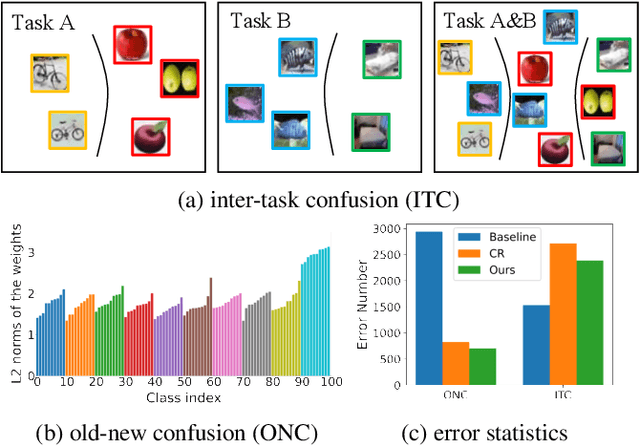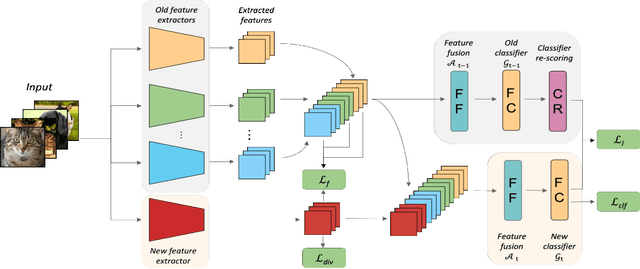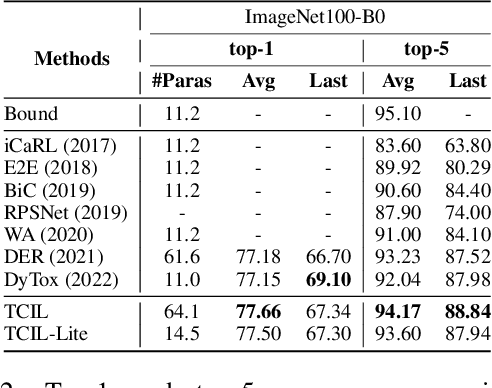Resolving Task Confusion in Dynamic Expansion Architectures for Class Incremental Learning
Paper and Code
Jan 03, 2023



The dynamic expansion architecture is becoming popular in class incremental learning, mainly due to its advantages in alleviating catastrophic forgetting. However, task confusion is not well assessed within this framework, e.g., the discrepancy between classes of different tasks is not well learned (i.e., inter-task confusion, ITC), and certain priority is still given to the latest class batch (i.e., old-new confusion, ONC). We empirically validate the side effects of the two types of confusion. Meanwhile, a novel solution called Task Correlated Incremental Learning (TCIL) is proposed to encourage discriminative and fair feature utilization across tasks. TCIL performs a multi-level knowledge distillation to propagate knowledge learned from old tasks to the new one. It establishes information flow paths at both feature and logit levels, enabling the learning to be aware of old classes. Besides, attention mechanism and classifier re-scoring are applied to generate more fair classification scores. We conduct extensive experiments on CIFAR100 and ImageNet100 datasets. The results demonstrate that TCIL consistently achieves state-of-the-art accuracy. It mitigates both ITC and ONC, while showing advantages in battle with catastrophic forgetting even no rehearsal memory is reserved.
 Add to Chrome
Add to Chrome Add to Firefox
Add to Firefox Add to Edge
Add to Edge